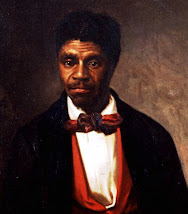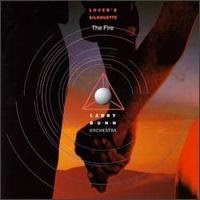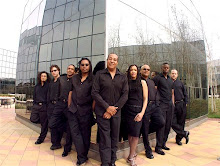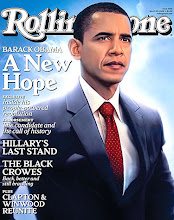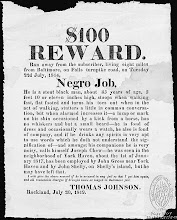
By Larry W. King
Volume II, Number XXIX
November 2, 2009
Ability Within Accountability
“When someone has been given much, much will be required in return; and when someone has been entrusted with much, even more will be required.” – Luke 12:48b (New Living Translation)
Jesus had been speaking to both the relentless horde which had gathered around Him and to the disciples in a series of parables. The twelfth chapter of Luke is replete with timeless insight from our Lord. I urge you to digest it wholly and receive the full benefit of its valuable instruction, to which you are entitled. Countless commentaries, bible studies, hymns and song lyrics (“His Eye Is On The Sparrow” and “Seek Ye First The Kingdom of God” to name two) have come from this chapter – further testament to its priceless content.
However, because Jesus instructs on multiple levels, the passage of scripture surrounding our text is sometimes misunderstood. First, one can readily get confused about exactly to whom Christ is speaking – the disciples, the crowd or (indirectly) the Pharisees? Second, why does Jesus issue such stern warnings to everyone present? And exactly what is the real meaning behind all the parables? Biblical scholars and theologians have written volumes on this chapter alone. So the Clarion is simply not a fit forum for extensive exploration. Nevertheless, cherished reader, I do wish to focus upon a scant few verses of this rich chapter for your edification.
Just prior to the passage cited, Jesus relates the following parable: “… A faithful, sensible servant is one to whom the master can give the responsibility of managing his other household servants and feeding them. If the master returns and finds that the servant has done a good job, there will be a reward. I tell you the truth, the master will put that servant in charge of all he owns. But what if the servant thinks ‘my master won’t be back for a while’, and he begins beating the other servants, partying and getting drunk? The master will return unannounced and unexpected, and he will cut the servant in pieces and banish him with the unfaithful. And a servant who knows what the master wants, but isn’t prepared and doesn’t carry out those instructions, will be severely punished. But someone who does not know, and then does something wrong, will be punished only lightly.” – Luke 12:42-48a (NLT). At this point, our Lord utters the enduring words of our text.
I have three (3) brief points. They are these:
1) All believers are given gifts or abilities by the Holy Spirit. The apostle Paul writes to the Greek church at Corinth, “And there are distinctive varieties of service and ministration, but it is the same Lord [Who is served]. And there are distinctive varieties of operation [of working to accomplish things], but it is the same God Who inspires and energizes them all in all. But to each one is given the manifestation of the [Holy] Spirit [the evidence, the spiritual illumination of the Spirit] for good and profit” – I Corinthians 4:5-7 (AMP). In short, God – through the catalyst of the Holy Spirit – fuels every believer with unique creativity, personality traits and (physical, mental or Spiritual) skills, to get His business done.
2) Our gifts are intended to encourage, uplift and help others. Again, Saint Paul writes to the young church at Rome, “We then that are strong ought to bear the infirmities of the weak, and not to please ourselves” – Romans 15:1 (KJV). No matter how much ego gratification we may get from them, our gifts are not for us! They’re for the benefit of anyone on the receiving end of our various ministries. If the gift is singing or playing music, the blessing goes to the hearer; if preaching, the congregation is blessed; if feeding or clothing the hungry and destitute, the starving and homeless are blessed; and so on with every gift of the Spirit. Devotional writer Bob Gass asserts, “The Holy Spirit wants to produce fruit in you so that others can feed off you and be nourished.” Don’t get it twisted. Spiritual gifting is not about me … and it’s not about YOU, either.
3) Every gift carries with it responsibility AND accountability. On the wall of my basement studio I have a framed poster of Stevie Wonder – one of my musical heroes, along with King David the Psalmist, Stravinsky, Miles Davis (for whom my son, Myles is named) and Fred Hammond - and the caption reads “We all have ability. The difference is how we use it.“ It’s an inspiring quote for me, and it echoes the meaning of the words of Christ in today’s text.
Regarding the servant who knew his Master’s will, yet was intentionally slothful, Christ was crystal clear. That servant would be severely punished. And he contrasted him with the servant who was merely ignorant, receiving a mild chastisement. Yet even he would still be punished! Our Lord’s salient point was about accountability. And His message to 21st-century Christians is this: We all have ability. That is God’s gift. Assuredly, we shall be held accountable for whether or not we use our ability, and for how we use it. Because the reason for said ability is to serve others and to accomplish God’s divine will on earth. Hear well Jesus’ own words: “Verily I say unto you, Inasmuch as ye have done it [fed the poor, clothed the naked and visited the sick or imprisoned … in short, served by using your gifts] unto one of the least of these my brethren, ye have done it unto me!” – Matthew 25:40 (KJV) [my editorialization].
We find the word ability within accountability. Are you accountable for the ability found within you?
---------------------------------------------------------------------------------------------------------------------------------
Larry W. King is a graduate of the University of Cincinnati College-Conservatory of Music (Magna cum Laude) and heads the Denver-based music group, Kingdom Kru. He serves as Minister of Music at Faith Community Baptist Church under the leadership of co-pastors Rev. Douglas and Katherine Farley.

























